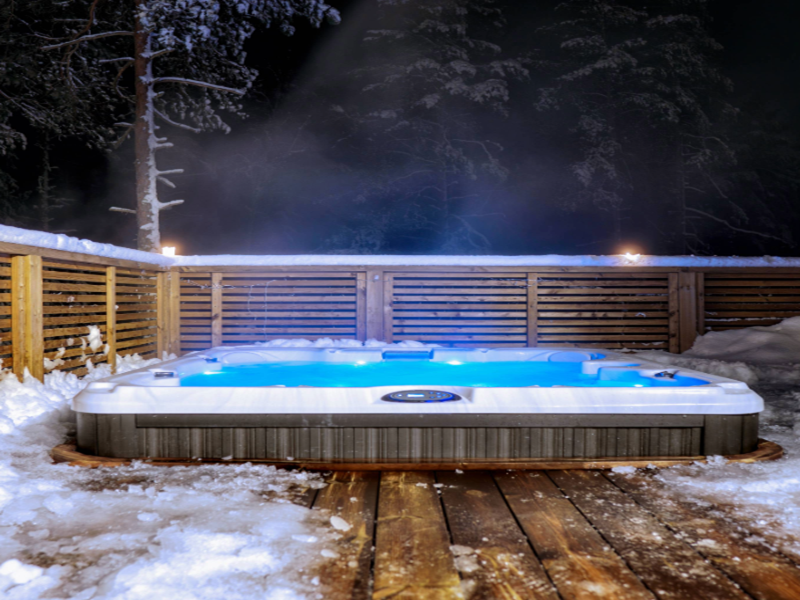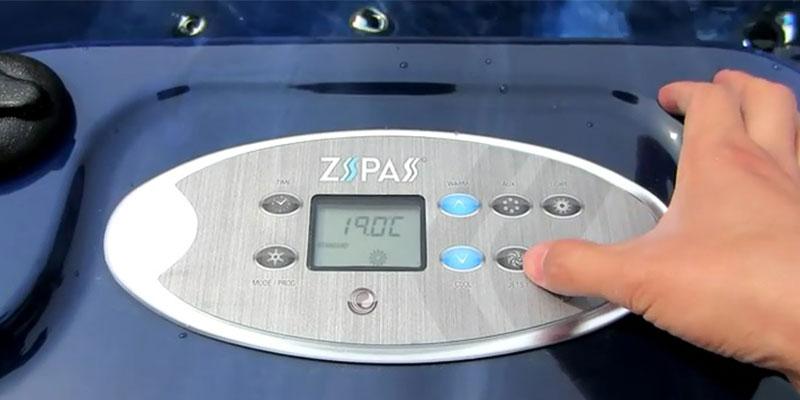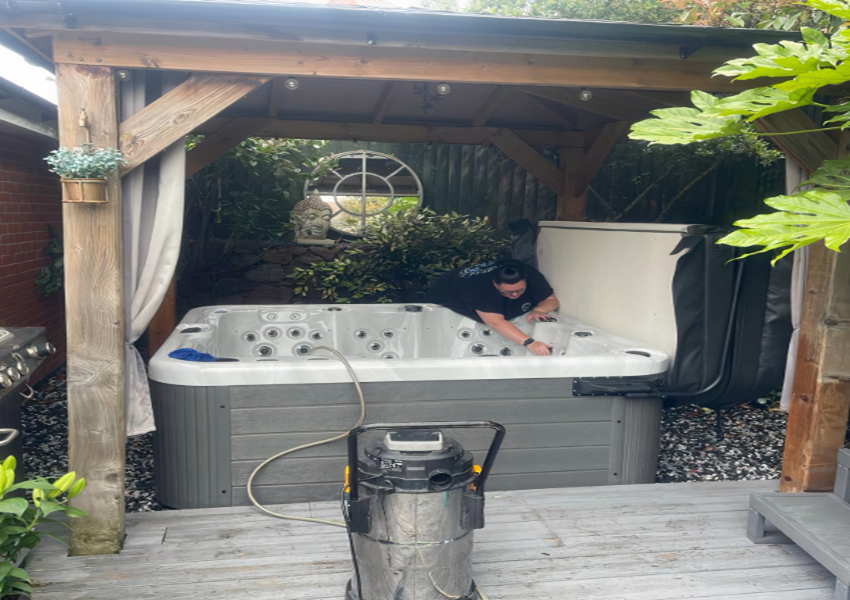When it comes to keeping your hot tub water clean and sanitized, two of the most popular choices are chlorine and bromine. Both are effective sanitizers, but each has its pros and cons. Choosing between chlorine and bromine can be tricky, as it depends on various factors such as your personal preferences, hot tub usage, and maintenance routines. In this blog, we’ll dive deep into the differences between chlorine and bromine to help you make an informed decision about which is better for your hot tub.
What is Chlorine?
Chlorine is a well-known disinfectant commonly used in swimming pools, hot tubs, and spas. It’s effective at killing bacteria, viruses, and other harmful microorganisms that can thrive in warm water environments. Chlorine is a powerful oxidizer, meaning it can break down organic matter like sweat, body oils, and lotions, which can contribute to water contamination.
Chlorine is typically available in two forms for hot tubs: tablets and granules. When added to the water, it works quickly to sanitize, keeping the water clean and safe for soaking. However, chlorine tends to dissipate faster in warm water, requiring more frequent additions to maintain effective sanitization levels.
What is Bromine?
Bromine, like chlorine, is a halogen and is used to disinfect water. It’s also an effective sanitizer, killing bacteria and other harmful microorganisms. The key difference is that bromine is more stable in hot water and less affected by higher temperatures than chlorine. This makes it a popular choice for hot tubs, as the elevated water temperature can cause chlorine to degrade more quickly.
Bromine is often available in tablet or granular form, much like chlorine, but it can also be found in pre-filled floaters or automated dispensing systems. Bromine works by forming bromamines when it reacts with contaminants in the water, which still possess sanitizing properties, unlike chloramines, which are less effective.
Chlorine: Pros and Cons
Pros:
-
Effective and Fast-Acting: Chlorine is very effective at killing bacteria and contaminants quickly. It works almost instantly once added to the water.
-
Widely Available and Affordable: Chlorine is more commonly found and usually less expensive than bromine.
-
Higher Oxidizing Power: Chlorine is a strong oxidizer, so it breaks down oils, dirt, and organic matter efficiently.
Cons:
-
Faster Dissipation: In hot tubs, chlorine dissipates more rapidly than bromine due to the heat. You may need to add it more often.
-
Strong Odor: Chlorine has a strong, often unpleasant smell, especially when it reacts with organic materials, producing chloramines. This odor can linger in the air and on the skin.
-
Skin and Eye Irritation: Chlorine can irritate the skin, eyes, and respiratory system, particularly when used in high concentrations or if the water is not balanced properly.
Bromine: Pros and Cons
Pros:
-
More Stable in Hot Water: Bromine is much more stable than chlorine in hot water. It remains effective even in higher temperatures, making it a better option for hot tubs.
-
Less Odor: Bromine tends to have a milder odor than chlorine. This makes it a preferred choice for people who are sensitive to strong chemical smells.
-
Works Well with Hot Tub Covers: Bromine’s chemical structure is less prone to being affected by hot tub covers, which can block UV rays from the sun. Bromine stays more stable in low-light environments.
-
Gentler on Skin and Eyes: Bromine tends to be less irritating to the skin and eyes compared to chlorine, which makes it a better choice for people with sensitive skin or allergies.
Cons:
-
More Expensive: Bromine is typically more expensive than chlorine, both in terms of the initial purchase and ongoing maintenance costs.
-
Slower Acting: Bromine is slower to act than chlorine, which means it might take longer to clear up water that has been contaminated.
-
Less Effective as an Oxidizer: While bromine is an excellent sanitizer, it’s not as strong an oxidizer as chlorine. It doesn’t break down contaminants as quickly, so additional oxidizers (like non-chlorine shock) might be necessary.
Which One is Better for Your Hot Tub?
The choice between chlorine and bromine for your hot tub ultimately comes down to your priorities and preferences. Here’s a summary to help guide your decision:
-
Choose Chlorine if: You want a more affordable option that works quickly to sanitize water. Chlorine is also a good choice if you don’t mind more frequent maintenance and are comfortable with higher levels of odor. It’s an excellent option if you use your hot tub occasionally and are looking for something cost-effective.
-
Choose Bromine if: You want a more stable, low-odor solution that works well in hot water. Bromine is ideal for regular hot tub users who want less maintenance and fewer chemicals in the water. If you have sensitive skin or eyes, bromine might be a better fit due to its gentler nature.
Conclusion
Both chlorine and bromine are effective sanitizers for hot tubs, but each has its strengths and weaknesses. Chlorine is fast-acting and cost-effective, while bromine is more stable in hot water and gentler on the skin. By considering factors like your budget, how often you use your hot tub, and how sensitive you are to chemical smells and irritation, you can choose the best sanitizer for your needs. Whether you choose chlorine or bromine, regular maintenance and proper water balance are key to keeping your hot tub water safe and enjoyable.



